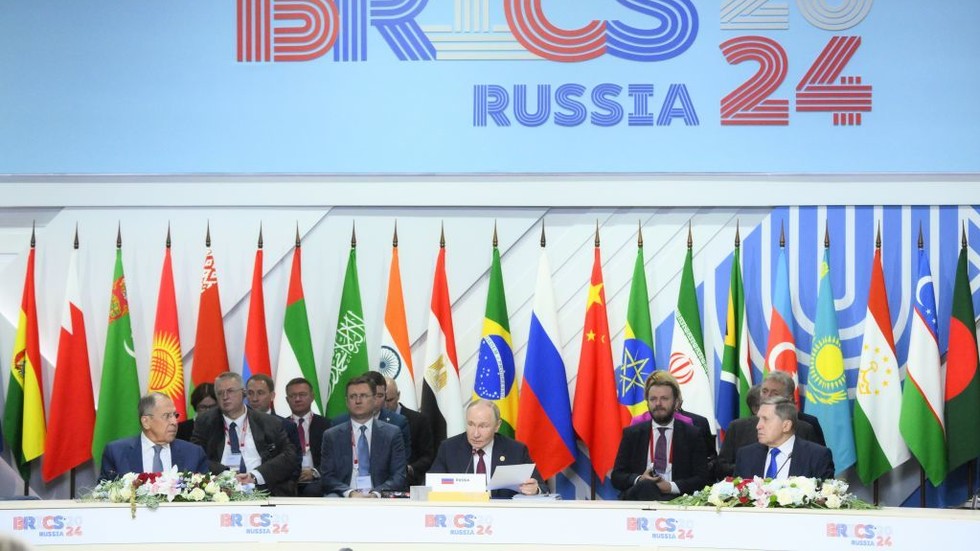The recent BRICS summit held in Kazan, Russia, resulted in a joint communique that encapsulates the group’s collective vision for global governance, economic development, and enhanced international cooperation. The statement acknowledges the overwhelming global challenges and crises, emphasizing the necessity for a more equitable and just international order. The BRICS nations—comprising Brazil, Russia, India, China, South Africa, as well as new members Ethiopia, Egypt, Iran, and the United Arab Emirates—reaffirmed their commitment to fostering a multipolar world. This vision promotes the idea that all nations should have an equitable stake in global matters and advocates for the increased representation of emerging and developing economies within significant international institutions.
Central to the BRICS declaration is an acknowledgment of the emergence of new power centers poised to contribute to a balanced multipolar order, which the group believes would favor developing nations over the existing Western-centric international framework. The summit recognized the vital role of regional organizations, such as the African Union and the Shanghai Cooperation Organization (SCO), as platforms for economic cooperation and cultural exchange. Furthermore, there are calls for strengthening the World Trade Organization and expanding the UN Security Council to provide better representation for the Global South, illustrating the group’s dedication to equitable governance on the global stage.
The BRICS nations emphasized the principle of sovereign equality, underscoring that all countries have the right to determine their own development pathways without external interference. The communique expresses the group’s spirit of mutual respect and solidarity while also acknowledging the growing interest from countries in the Global South to either participate in or join BRICS. To facilitate this, the BRICS members announced the creation of a new ‘Partner Country’ category aimed at enhancing collaboration with emerging market and developing countries, a move that reflects the group’s commitment to solidarity and true international cooperation.
An important facet of the BRICS declaration was its stance against unilateral sanctions and coercive measures, which it deems incompatible with international law. The document articulated concerns regarding the negative impacts of such measures on the global economy, international trade, and sustainable development, specifically highlighting how these actions disproportionately affect vulnerable populations. The BRICS group condemned sanctions imposed under the guise of climate or environmental concerns and emphasized the detrimental effects of unilateral protectionist practices that disrupt global supply chains.
On the economic front, the BRICS summit championed the use of local currencies in international transactions among member nations, advocating for the establishment of a Cross-Border Payments Initiative. This approach aims to reduce reliance on dominant currencies like the US dollar and euro, thus facilitating smoother and more efficient cross-border trade. Russian President Vladimir Putin reinforced this stance by arguing that utilizing local currencies helps insulate economic development from political influences. Additionally, the BRICS New Development Bank was highlighted for its role in financing projects in local currencies, thereby establishing itself as a significant multilateral development institution.
The communique also made mention of pressing global security issues, particularly the ongoing humanitarian crisis in the occupied Palestinian territories and the conflict in Ukraine. The BRICS nations expressed concern over Israel’s military operations in Gaza and called for an immediate cessation of hostilities and the return of displaced individuals. In regard to the Ukraine conflict, the group reiterated a neutral stance, advocating for peaceful resolution through dialogue and diplomacy while urging all countries to align their actions with the UN Charter. The report indicates that while the Ukraine crisis is significant, it is not at the forefront of the BRICS agenda, reflecting the group’s broader focus on economic cooperation and global governance reform in the face of Western hegemony.

